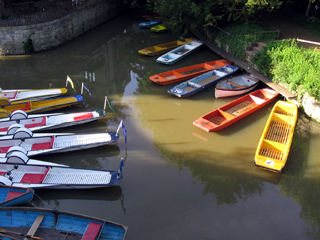I am extremely grateful to the many friends of mine who have introduced me to new music over the course of the last few years. Below are a list of ten songs that most people probably will not have heard, but which I heartily endorse. Unfortunately, I cannot actually give you the songs, because goons from the RIAA would break down my door in the night. The list is therefore provided for the benefit of those in search of new music, and capable of acquiring it for themselves by means that satisfy the legal and ethical codes that apply to them.
Since most of these artists are relatively unknown, I would definitely think better of you if you actually went out and bought their albums.
1) Nina Simone, “Feeling Good” from the album Nina Simone in Concert
This energetic song was sent to me by Lauren Priest. I have always been an appreciator of strong female vocalists and, along with her jazz accompaniment, Nina Simone definitely rises to that level. This is the kind of song you’ll find yourself singing automatically while walking briskly home from something really enjoyable.
2) Idan Raichel, “Mima’amakim (From the deep)” from the album Mimamakayim
While I can’t speak or understand a word of Hebrew, I love the complex melodies in this song, as well as the interesting texture of the language itself. The interplay between vocals and instrumentation in this track is really fascinating, in a way that reminds me of Robert Miles transported into an entirely different genre and mood. I got it from Lindi.
3) Antony & the Johnsons, “Beautiful Boyz” from the album Noah’s Ark
Alison introduced me to this sombre and mournful, yet beautiful, track. This is the kind of music that wanders into my mind during really long solitary walks of the sort that it’s sometimes advisable to take when sad.
4) KT Tunstall, “Black Horse And The Cherry Tree” from the album Eye to the Telescope
Almost the exact opposite tone from the previous song, this song is energetic to the point of being positively jaunty. I could easily imagine Astrid dancing to this track, after she lent it to me.
5) Neko Case, “Hold On, Hold On” from the album Fox Confessor Brings the Flood
This is the only really superb song that I ever got as a free song of the week from the iTunes music store. From Neko Case’s new album, this autobiographical piece has the same combination of powerful female vocals and enigmatic lyrics that I so appreciate from Tori Amos. A video of this song being performed can be viewed here.
6) Lorraine a’ Malena, “Just Me and Eve” from the album Mirror Mirror
A somewhat comic retelling of Genesis, this song was apparently written by Neil Gaiman and is performed by his assistant. It may be my appreciation for Paradise Lost manifesting itself again, but I quite enjoy the tune. I am grateful to Jessica for introducing me to it. This one is actually available free online. How cool is that?
7) Feist, “When I was a Young Girl” from the album Let It Die
Many thanks to Jonathan for sending me this song. I love the rhythmic interplay between the drums and vocals. It reminds me, to a certain extent, of a few songs from the Oh Brother, Where Art Thou soundtrack, insofar as it accompanies a kind of moralizing message (probably ironic) with really enjoyable sounds.
8) Mad Pudding, “First We Take Manhattan” from the album Grand Hotel
This cover of Leonard Cohen’s song is done by a Vancouver folk/celtic band that is somewhat similar to Spirit of the West. The contrast between their energetic interpretation and Cohen’s determinedly poetic style of delivering is striking. I first heard this song from a CD owned by my father.
9) The Vincent Black Shadow, “This Road is Going Nowhere” from the album The Vincent Black Shadow
Since Neal gave me the superb debut album of this Vancouver band, I have listened to it more than sixty times. This is the kind of song that alters the way you experience everything for a good fifteen minutes, at least, after you hear it. I especially like the musical interludes with strings and saxophone.
10) Rae Spoon, “To Find You” from an unknown album
On the first CD from which I ever heard Tori Amos and Tegan and Sara, my friend Jenny also included this wonderfully downbeat vocal and guitar track by a Vancouver artist. A complex and evocative piece of music.
This is by no means an exhaustive list, so please don’t feel insulted if a song you sent me isn’t listed here. These are just songs that happen to have found particular resonance with me, during the time when I’ve been in Oxford.
[Update: 25 February 2007] Since so many people were looking for them, some Idal Raichel lyrics translated into English have been added.




